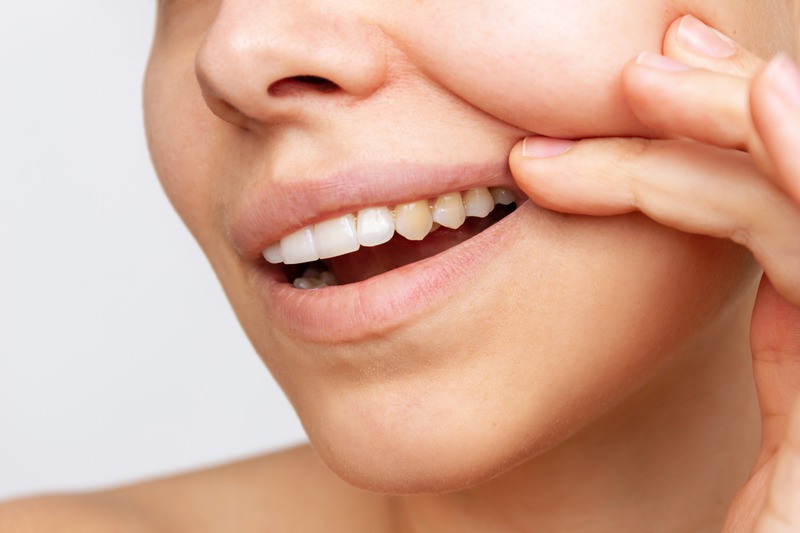
What Are the Common Myths About Oral Health?
Many of us grow up hearing various tips and tricks regarding the maintenance of our oral health, yet not all of this advice is accurate. Myths and misconceptions about dental care can lead to inadequate oral hygiene and could potentially result in dental problems. Below, we’ll explore some common myths about oral health and dispel them with factual information so you can make the best decisions for your teeth and gums.
Myth 1: Sugar Is the Only Cause of Cavities
One widespread myth is that eating sugar is the sole cause of cavities. Although sugar plays a significant role in tooth decay, it isn’t the only factor. Cavities occur when bacteria in the mouth produce acids that attack the tooth enamel following consumption of carbohydrates:
-
Starchy foods like bread and crackers can also contribute to cavities.
-
The frequency of snacking and not cleaning your teeth well can lead to increased risk.
-
Acidic beverages can weaken enamel and create a more conducive environment for cavities to form.
Myth 2: Brushing Harder Means Cleaner Teeth
Many believe that scrubbing teeth with force cleans them more effectively. In reality, brushing too hard can damage gums and erode tooth enamel. It’s better to use a gentle, circular motion with a soft-bristled toothbrush to preserve the integrity of your teeth and gums.
Myth 3: If Your Gums Bleed, It’s Best to Stop Flossing
When gums bleed during flossing, some might think it’s wise to give them a break. Contrary to this belief, bleeding can indicate inflammation and the need to remove plaque buildup by flossing more regularly. With consistent care, the bleeding often diminishes as gums become healthier.
Myth 4: Chewing Gum Is a Good Substitute for Brushing
Chewing sugar-free gum can be a great way to freshen your breath and can help dislodge food particles, but it should not replace brushing and flossing. Gum chewing is a helpful addition to oral hygiene, but it does not clean teeth as thoroughly as brushing with fluoride toothpaste.
Myth 5: You Don’t Need to See a Dentist if Your Teeth Look and Feel Fine
Preventative dental care is crucial, even if there are no apparent issues. Regular dental visits help catch potential problems early and maintain overall oral health:
-
Some dental issues may not be visible or cause pain until they are more advanced.
-
Professional cleanings remove plaque and tartar that cannot be removed by brushing alone.
Dental professionals can also guide proper oral hygiene practices and identify areas that need extra attention.
Myth 6: Baby Teeth Don’t Matter Since They Fall Out Anyway
Baby teeth are placeholders for permanent teeth and are essential for proper chewing, speech development, and maintaining space for adult teeth to come in correctly. Neglecting oral care for baby teeth can lead to pain, infections, and issues with permanent teeth alignment. In fact, pediatric dentists in Morgan Hill, CA, recommend regular check-ups for children to ensure their developmental milestones concerning oral health are met.
Myth 7: Whitening Damages Your Teeth
Some think teeth whitening can harm enamel, but when done correctly and under professional supervision, it’s generally safe. Overusing whitening products or not following instructions can lead to sensitivity. Clinics like Cochrane Plaza Dental Care offer professional whitening services that ensure the process is both effective and safe.
Myth 8: Oral Health Is Only About Your Teeth
Oral health doesn’t stop at your teeth. Gums, the tongue, and the roof of your mouth are all crucial to overall dental wellness. Infections and conditions such as gum disease can have significant implications on the rest of the body and have been linked to heart disease and diabetes.
Busting Common Misbeliefs Around Professional Dental Cleanings
Many people don’t fully understand what a professional dental cleaning entails, thinking it might just be an extensive version of what they do at home. However, these cleanings offer much more than a simple scrub. During these sessions, your dentist or dental hygienist performs the following actions:
-
Oral Health Check: Before starting the cleaning, they assess your overall oral health, checking for signs of sensitivity, decay, and gum disease.
-
Tartar and Plaque Removal: They effectively remove tartar (hardened plaque) and plaque in areas that are hard to reach with regular brushing and flossing.
-
Teeth Polishing: Your teeth are polished to eliminate surface stains and smooth out any remaining plaque, leaving your teeth cleaner and your smile brighter.
The True Value of Professional Dental Cleanings
These professional dental cleanings go far beyond cosmetics. They are an essential preventive measure—not only do they improve the look of your smile, but they also act as a safeguard against a host of future dental problems. For example:
-
Preventing Gum Disease: By removing plaque and tartar that contribute to gum inflammation and disease, these cleanings help keep your gums in top health.
-
Protecting Against Tooth Decay: Regular removal of plaque and tartar also goes a long way in preventing cavities and preserving the integrity of your teeth.
-
Health Screenings: Often, dental professionals can spot early signs of other health issues—like oral cancer—during a cleaning, further showcasing their preventive value.
Overall, the benefits of professional dental cleanings are a fundamental aspect of dental care that shouldn’t be overlooked due to misconceptions. They do much more than clean; they offer a comprehensive check and maintenance of your oral health, helping detect issues early on, providing preventive care, and keeping your smile looking its best.
Conclusion
Understanding the facts about oral health is fundamental in maintaining a healthy smile. From debunking the myths about the causes of cavities and the impact of gum bleeding to recognizing the value of baby teeth and professional dental cleanings, informed decisions are key to effective oral care. Regular visits to your dentist and proper daily hygiene practices will go a long way in ensuring the sustained health of your teeth and gums.
